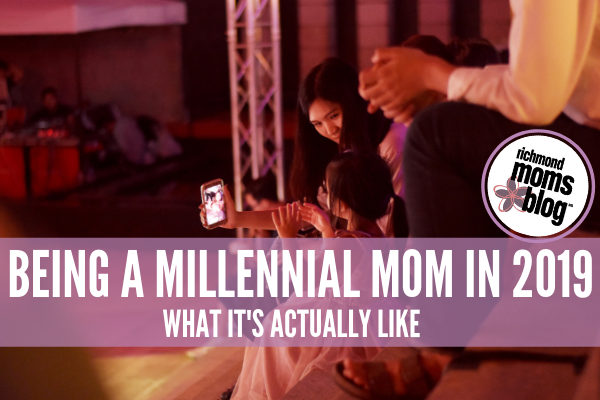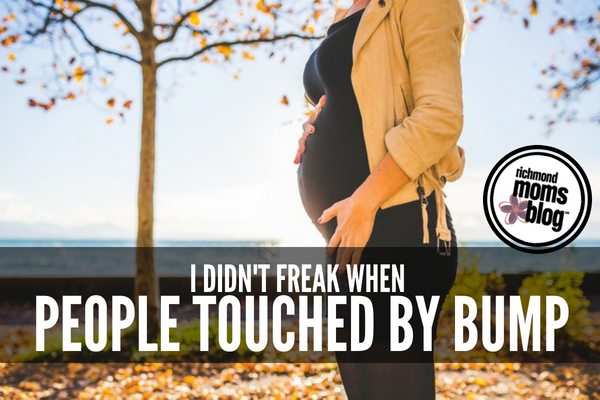May is Maternal Mental Health Awareness Month.
To some, this may seem like something that doesn’t warrant an entire month’s attention. For those who have experienced maternal mental health illness, we know that it is a very serious matter that warrants serious attention.
It is also important to remember that most new mothers will experience the “typical” baby blues that come with the enormous hormonal shifts going on in our bodies before, during, and after pregnancy. Not all baby blues escalate to postpartum depression or anxiety, but some do. We need to know the difference and what to do.
According to the World Health Organization,
Worldwide about 10% of pregnant women and 13% of women who have just given birth experience a mental disorder, primarily depression. In developing countries, this is even higher, i.e. 15.6% during pregnancy and 19.8% after childbirth. In severe cases, mothers’ suffering might be so severe that they may even commit suicide. In addition, the affected mothers cannot function properly. As a result, the children’s growth and development may be negatively affected as well. Maternal mental disorders are treatable. Effective interventions can be delivered even by well-trained non-specialist health providers.
Even if you haven’t personally experienced a mental health disorder as a mother, chances are you know someone who has.

For the sake of formal disclosures, I am not a medical or behavioral health professional. I have no clinical expertise other than first-hand experience and in-depth treatment.
In my personal experience, mental health patterns definitely run in families.
Before I got pregnant, I was well aware that several of the women in my direct family line had battled things like anxiety and depression over the years.
One family member in particular that I love and respect, and with whom I spent a great deal of time in my early years, shared with me that in her early mothering years, she was highly medicated on valium because she was racked with anxiety and paralyzing fears of everything from heights to snakes. Another family member shared that she had battled depression so many times over the years that she wondered if she was a fit mother.
Since I was a high-strung perfectionist with a history of eating disorders, I should have been more vigilant about the possibility that I might face postpartum depression and/or anxiety. But, in the days following the birth of my first child, I was happy and engaged with my child. He was healthy and hungry, and we had no real issues with breastfeeding or anything else for the matter.
By the second week, sleep deprivation was taking its toll. I was definitely becoming irritable and moody. But there was nothing I didn’t think was normal for an exhausted new mother.
In the weeks that followed, however, it was becoming quite apparent that there was cause for concern; I was not having just the normal baby blues. The problem is that it was becoming apparent to everyone BUT me.
With the help of loved ones and trusted medical professionals, I was able to realize that I was struggling with postpartum anxiety and depression. Together, we were able to formulate a treatment plan that allowed me to be the mother I wanted and needed to be.

I learned a lot from this experience.
I was much better prepared to look for the signs of mental health disorder in my second pregnancy. To my delight and relief, I did not struggle with the anxiety or depression the second time, but I think that many of the skills and strategies I learned during my therapy helped to minimize the chances.
All in all, I will always be more aware of symptoms like anxiety, panic attacks, and depression.
Even in other phases of our mothering days, we can see these symptoms creep back in, and it takes great courage and mindfulness to face mental health challenges as a woman and mother.
Know this:: you are BRAVE and STRONG for taking care of yourself and asking for help when help is needed. Mental health is never a laughing matter.
Some things I learned from my experience with postpartum anxiety and depression::
- Talk to your spouse during your pregnancy about some of the signs and symptoms.
- Talk to your medical provider about things to be on the lookout for and what to do if you think you are struggling.
- Listen to your partner or loved one if they say something is off. They are not attacking you and only want what is best.
- Ask for help with your baby during this time and don’t stay alone for long periods of time until your symptoms are more manageable.
- Know that you did not DO or NOT DO anything to cause this.
- Talk about maternal mental health with your mom friends and help spread awareness.
It takes a village, as they say, to do this mothering thing. It also takes a village to take care of one another, and I am honored to be part of yours.
Share your experience of maternal mental health with us here.










Thanks Christina! I know this may sounds silly, I had heard of postpartum depression, but ironically it never occurred to me that anxiety and even panic attacks were linked to the post-baby hormones too!! I definitely struggled with that after my first, but thought it was just an autoimmune/health issue from years ago popping back up. Ha, maybe, in hindsight, it had a lot to do with postpartum hormones! I definitely am going to be more aware of it this time around. Thanks for sharing!
It’s always surprising how much we were never told by those that have walked this path of motherhood before us. I’m so glad this post shined a light on maternal mental health for you and I know it will be a blessing to be prepared the second time around. Can’t wait to hear of baby boy’s arrival!
Comments are closed.